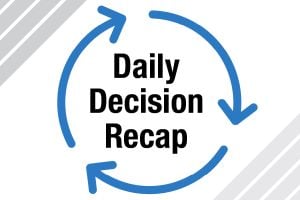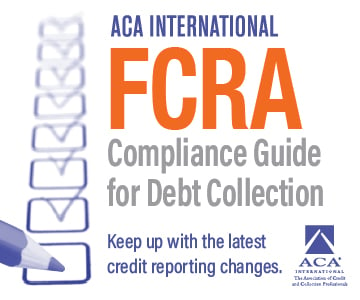
09/19/2022 4:00 P.M.
5.5 minute read
A lawsuit in an Oregon District Court is challenging the U.S. Department of Education and Secretary of Education Miguel Cardona’s authority to discharge or forgive student loan debt on a mass basis under the Higher Education Relief Opportunities for Students (HEREOS) Act of 2003.
The plaintiff, Daniel Laschober, representing himself in the case in the U.S. District Court, District of Oregon—Portland Division, filed a complaint for a temporary restraining order and preliminary injunction arguing the language of the HEROES Act does not give Cardona the “wide-ranging authority to discharge or forgive student loan debt on a mass or blanket basis” as claimed in August memorandums from the Assistant Attorney General’s Office of Legal Counsel (OLC) and the Department of Education’s Office of the General Counsel (OGC).
- The OLC memo states that under the HEROES Act, the Secretary of Education has “expansive authority to alleviate the hardship that federal student loan recipients may suffer as a result of national emergencies” and the act grants the secretary authority to “reduce or eliminate the obligation to replay the principal balance of federal student loan debt, including on a class-wide basis in response to the COVID-19 pandemic, provided all other requirements of the statute are satisfied.”
- The OLC memo concluded that the Secretary of Education must find the reduction or cancellation of student loan debt ensures that affected individuals are not placed in a worse position financially because of their status of affected individuals.
- Affected individuals include those serving on active duty during a war or other military operation or national emergency; performing qualifying National Guard duty during a war or other military operation or national emergency; that reside or are employed in an area that is declared a disaster area by any federal, state, or local official in connection with a national emergency; or that suffered direct economic hardship as a direct result of a war or other military operation or national emergency, as determined by the Secretary of Education.
- The OLG memo also confirms the Secretary of Education’s broad authority to cancel student debt held by the federal government, noting in part that the secretary’s decisions regarding the amount of relief and the categories of borrowers that need relief should be informed by signs of financial harms they have or will likely experience because of the COVID-19 pandemic.
However, the plaintiff argues that only “affected individuals” are eligible for assistance defined in the HEROES Act and the Department of Education has not established the broad class of 43 million borrowers “suffered direct economic hardship as a direct result of a war or other military operation or national emergency” with respect to the COVID-19 pandemic, nor have they determined if those borrowers are in a worse place financially in relation to that financial assistance received because they are an affected individual.
Costs of Student Loan Forgiveness
The complaint also calls into question the costs and impact on the economy from the student loan forgiveness and payment pauses.
President Joe Biden announced his latest student loan forgiveness plans in August as well as an extension of the student loan payment and interest relief through Dec. 31, 2022, ACA International previously reported.
Borrowers earning less than $125,000 per year will see loan forgiveness of up to $10,000 and the Biden administration will forgive $20,000 for Pell Grant recipients, making it the largest federal student loan forgiveness to date.
An analysis released by the Penn Wharton Budget Model in August said the forgiveness plan could total about $300 billion in costs initially and reach as much as $330 billion if the effort continues for new borrowers and others who would be eligible for forgiveness in the future.
Lawrence Summers, the former director of the National Economic Council and Treasury Secretary for President Barack Obama, said the student debt relief is linked to increasing inflation, according to a report from Yahoo Finance. Summers said in several Tweets that “the best way to relieve student debt would be to allow it to be discharged in bankruptcy.”
Research and budget reports also say the student loan forgiveness plan will undermine the Inflation Reduction Act (IRA), another key piece of Biden’s agenda this year.
According to a report from the Committee for a Responsible Budget released Aug. 16—before Biden’s official announcement on the forgiveness plans—extending the repayment pause through the end of the year would cost $20 billion more, which equals the total deficit reduction planned in the first six years of the IRA.
When combined, these policies would consume nearly 10 years of deficit reduction from the IRA, the Committee for a Responsible Budget says.
The U.S. Department of Education, pending a decision on the student debt relief from Biden, has developed plans for implementation covering the president’s different proposals.
The student loan payment relief has been extended several times under both the Trump and Biden administrations.
In the Laschober v. Cardona claims against the Department of Education, the plaintiff argues the amount of student loan forgiveness per person or per household determined by the department is arbitrary and capricious.
“Estimates of the loan forgiveness plan range from $500 billion to $1 trillion, or
the equivalent of approximately one-quarter of the entire United States annual budget on a pre-COVID basis,” the complaint states. “The decision by defendants to take this action on an issue of such major national economic and political significance must be supported by clear statutory authorization, which is notably absent in this case.”
The complaint notes this authority is not included in the HEROES Act, rather it was only authorized by Congress in the CARES Act, which address funds for COVID-19 relief for student loan borrowers.
Therefore, unless restrained by the court, “financial harm to plaintiff resulting from the defendants’ plan to mass forgive student loans is foreseeable, quantifiable, irreparable, and due to the immediacy of the plan, imminent.”
In addition to the temporary restraining order preventing the Department of Education from implementing student loan forgiveness under the HEROES Act until a hearing on a preliminary injunction occurs, the plaintiff seeks a preliminary injunction enjoining the department from engaging in the “unlawful and unconstitutional acts” alleged in the complaint as well as costs and attorney’s fees.
ACA’s Take
This is the first case of its kind ACA has seen. The plaintiff’s theory is that if the Department of Education’s student loan forgiveness causes further inflation, which many economists believe it will, and if the government’s key tool to fight inflation is raising interest rates, then anyone with any variable/adjustable interest on any loan type—a mortgage, in this case—will suffer an economic loss as their interest costs rise.
There are several other entities and states that likely have standing in this case, and it is expected that there may be some additional forthcoming challenges based on differing theories.
If you have executive leadership updates or other member news to share with ACA, contact our communications department at [email protected]. View our publications page for more information and our news submission guidelines here.














